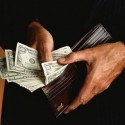Sober statistics bear out the fact that our attitude to alcohol is deeply unhealthy
OPINION: ‘MILAN HAS banned the consumption and sale of alcohol to young teenagers in an effort to curb binge drinking,” said yesterday morning’s news as I staggered downstairs to make a cup of tea.
“Parents of children under the age of 16 caught drinking wine or spirits will be liable to heavy fines of up to €500.”
There was an empty bottle of vodka in the kitchen where, the night before, three teenage girls aged 16 and 17 sat drinking before heading out at 11pm.
What do you do about this? How do you stop it? Or do you just let it happen, knowing it – and worse – is happening everywhere else? In Milan, they decided to make illegal what is already illegal here, not that we do much about it.
A 2006 report by the Office of Tobacco Control revealed that Irish 16- and 17-year-olds spend an average of €20.09 a week on drink. As one campaigning group put it, this amounts to an illegal alcohol market of €145 million.
We have a deeply screwed-up attitude towards alcohol. To get an idea of just how serious a problem we have with it, you only have to look at the statistics.
According to 2006 figures, Irish adults consume more pure alcohol a year (13.4 litres) than adults in every other European country bar Hungary. Statistically, Luxembourg is top of the league but it is widely accepted that this is a distortion caused by the fact that many people in neighbouring countries go there to socialise.
In 2007, a report by the Health Service Executive’s alcohol implementation group found that, between 1986 and 2006, the sale of alcohol rose in all categories.
Beer sales rose by 32 per cent and spirit sales by 46 per cent. Wine and cider sales rose by a staggering 523 per cent and 647 per cent respectively. During this time, the population rose just 20 per cent.
There are major public health issues associated with alcohol. Between 1995 and 2004, hospital discharges for alcohol-related liver disease rose by 147 per cent, according to Alcohol Action Ireland. There was an increase of 29 per cent in the proportion of teenage girls under 18 discharged from hospital for alcohol-related conditions, compared to an increase of 9 per cent for males under 18. During the same period, alcohol-related deaths rose from 3.8 deaths per 100,000 to 7.1.
Many cancers can be related to alcohol. Between 1994 and 2003, liver cancer had the highest rate of increase of all cancer types in Ireland, rising by 10.7 per cent in females and 7.4 per cent in males.
There is also a link between alcohol and suicide. In 2006-2007, alcohol was a factor in 41 per cent of all cases of deliberate self-harm. Alcohol-related disorders were the third-most common reason for admission to Irish psychiatric hospitals between 1996 and 2005.
Not surprisingly, there is a strong link between alcohol and crime. Almost half of people who kill others are drunk at the time. Alcohol is a potential trigger in one-third of domestic abuse cases.
It has also been found to be a factor in almost half of all sexual assaults on adults.
Then there is drink driving.
Approximately 120 people were killed each year between 2003 and 2005 in alcohol-related crashes. Where blood-alcohol concentration levels were available for drivers killed, almost six out of 10 had alcohol in their blood. One in six drivers with alcohol in their blood who were responsible for fatal crashes in 2003 was not above the legal limit.
Much of the liberalisation of alcohol in recent years (you can now buy it almost anywhere, even in petrol stations) was driven by the view that people act sensibly when restraints are removed and the novelty wears off. However with alcohol, the evidence suggests otherwise and, when prices fall and availability increases, consumption goes through the roof.
Last week, a minor celebrity moaned about getting a four-year driving ban after drinking and driving around Dublin and refusing to give a sample when arrested on suspicion of drink driving. “I wasn’t blotto, I was fine,” he told a showbiz journalist. “It was Christmas time . . . I had two pints of Guinness and a glass of Guinness. What’s the big deal?
“There’s no justice in this land. No justice at all in Ireland. Where’s the justice?”
Yes, it’s hard, really, really hard, to change attitudes.
source: Irish Times
